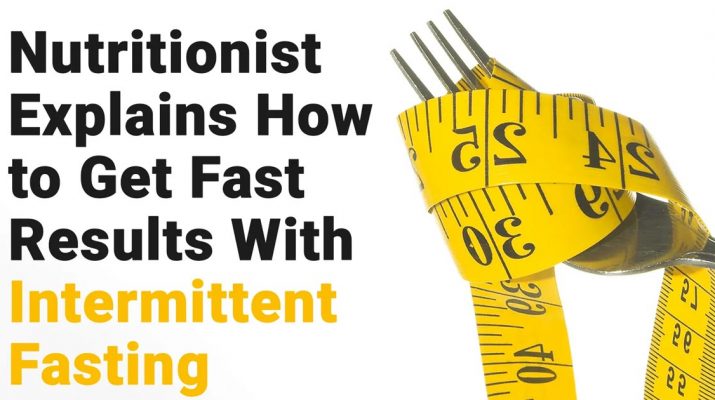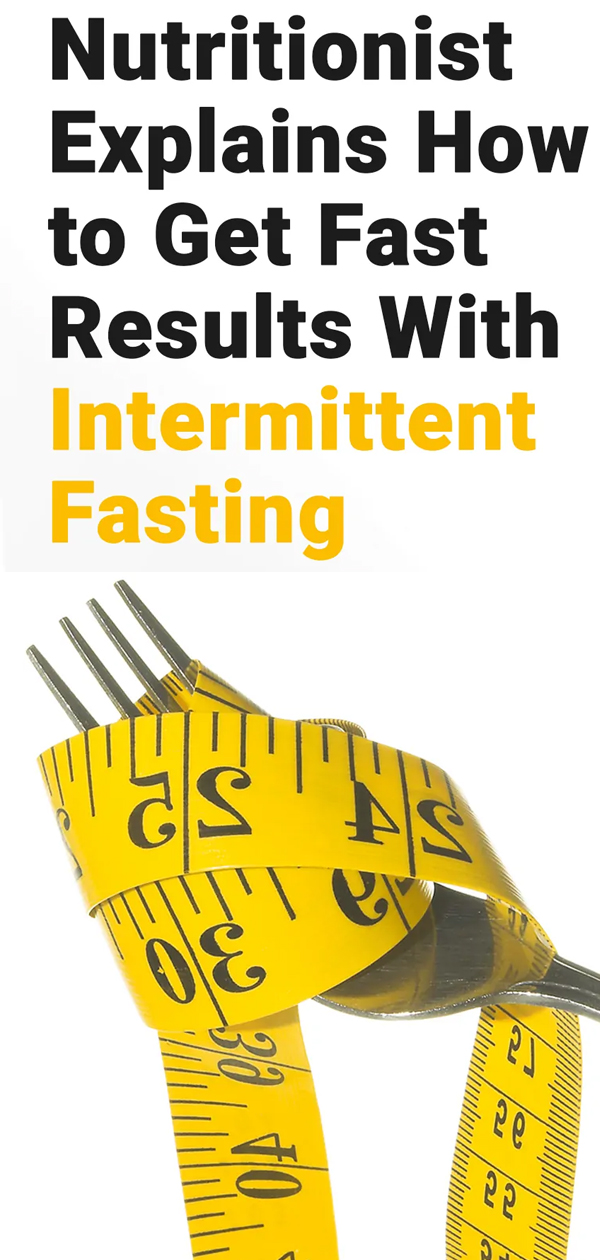Whether you are aiming for a fit body or a focused mind, intermittent fasting (IF) will help you reach your goal.
According to research, IF assisted people lose 7% of their waste circumference within two years. However, many people attempt the program but they quit almost immediately because they fail to consider some points that are crucial to being successful in implementing the program.
Here Are A Few Intermittent Fasting Tips For Fast Results:
1. Go Slow For More Success
In the case you are going with the 16/8 plan, and you are accustomed to having breakfast at 8 a.m., don’t push yourself the initial day till 12:00 p.m. Start by delaying your breakfast for half an hour, then one hour, and so on.
It might take you up to one week to skip breakfast with comfort. When you slowly increase your window of fasting, you curb issues like low energy, dizziness, general sadness regarding not eating, and headaches.
2. Select A Suitable Plan
There are a few intermittent fasting plans. They include 16/8 where you fast for 16 hours and eat for eight hours; 5:2 where you essentially limit the calorie intake for two days per week and consume regular meals for the rest of the week; and Warrior Diet where you undertake fasting for 20 hours and eat your meals for 4 hours.
While some people might prefer skipping breakfast, others might prefer skipping dinner. So choose a plan that suits your schedule. If IF is something you want to do in the long-term, go for a plan that you can sustain. Be open to testing different plans.
3. Drink A Lot Of Water
Within half an hour after you wake up, drink 12 ounces or more of water. In case you get hungry, drink at least another 12 ounces. Sometimes when you think you are hungry, it is usually boredom or thirst. Drinking massive amounts of water will keep your stomach full, assist you to be more alert, and help eradicate the need for eating. You can also drink sparkling water, black coffee, or tea.
4. Fasting Is Not That Bad
Most people are afraid of trying IF because they think fasting to be a difficult task. Fasting might be difficult for the first one week but the body will adjust, and it becomes a smooth sail onwards. IF will grant you mental clarity, a lot of energy, and you will not have to experience exhaustion that you used to experience after eating. Fasting will help you feel full for an extended period.
5. Carry Out Research
Read a lot of articles and watch a lot of YouTube videos regarding intermittent fasting to make your decision solid. You will be more motivated to undertake IF when you know about its benefits.
When you feel like you want to quit, remember that intermittent fasting cures overeating and food addiction, prevents bloating, improves digestion, increases lifespan, and prevents diseases such as Alzheimer’s.
6. Don’T Just Eat Salad
IF allows you to consume some of the foods that you had stopped eating such as pizza and carbs. You are also allowed to consume large amounts of food. Do not limit what you eat since you are already limiting your eating time.
You can consume a bowl of rice and chicken and take it down with a bottle of beer. Enough food will ensure you are full during the fasting period. But it is appropriate to eat healthily most of the times and include complex carbs, healthy fats, and protein in your diet.
7. Keep Busy
The first day of IF will be amazing as you will be pumped with adrenaline from attempting something new. Moreover, you will love the high energy and clarity you will experience. But from day two to four, you will suffer from hunger and food cravings. You can get through this by keeping busy. Start the program on a day that you are busy at work.
Avoid torturing yourself by being involved in activities that include food. Keep off the kitchen and away from restaurants and hotels. Don’t watch your friends prepare food, eat, or research on dinner recipes.
8. Take It Easy On The Workouts
When starting IF and you always have workouts in the morning, then skipping breakfast might seem impossible. You will have to put the exercise on hold for a few days until you get used to the program.
You can then resume working out while you skip the breakfast and it should be a bit easier since you are already used to it. If necessary, you can adjust the workout or the time of the workout so that your body can handle both the exercise and the fasting.
Conclusion
If you have always wondered how people manage intermittent fasting, then these few intermittent fasting tips should shed some light on your questions. For a great body shape and a clear and focused mind, go for intermittent fasting, and you will see great results.


